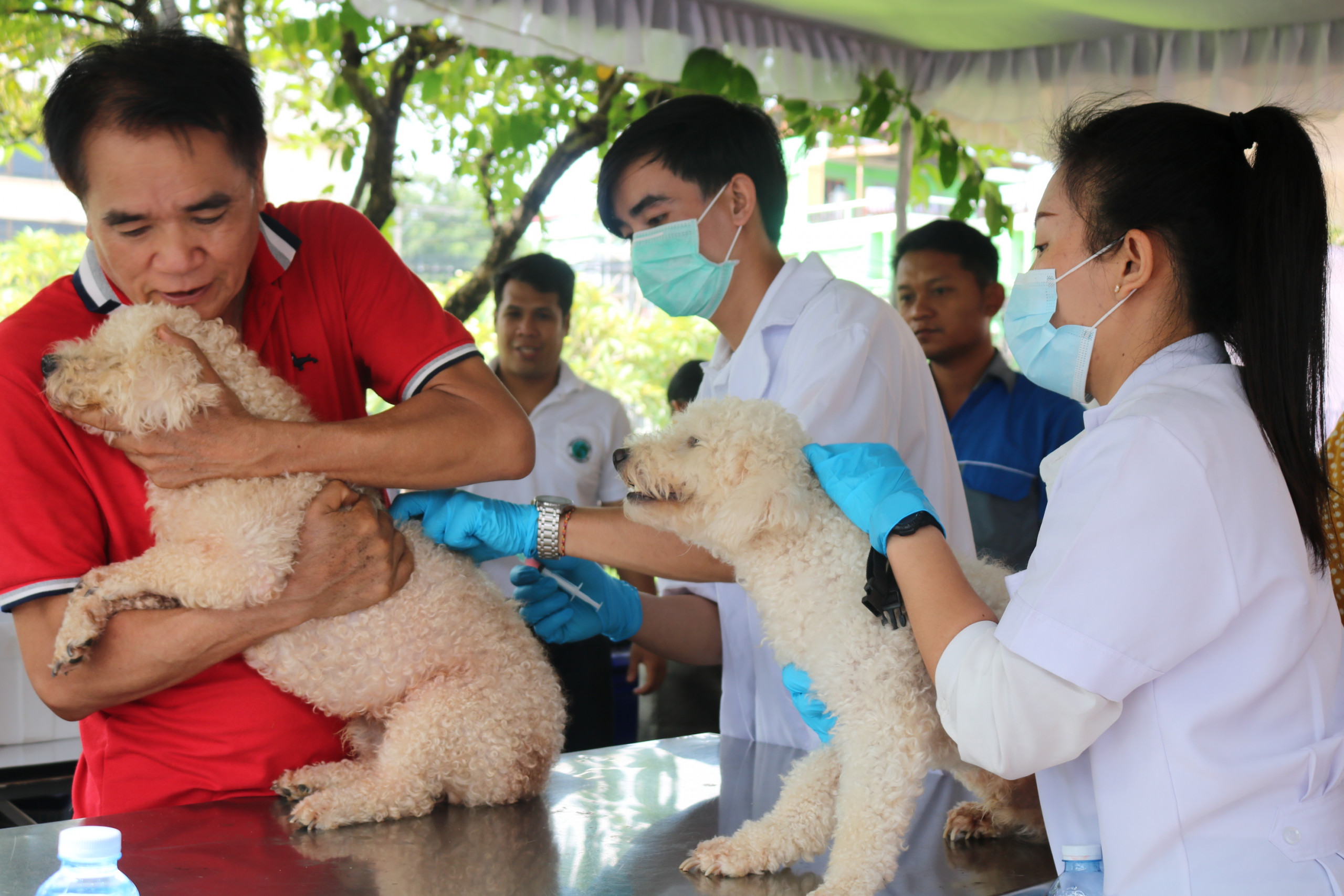
6 October 2022 (Laos) – Rabies is a fatal disease, and one that is unfortunately still found in Lao People’s Democratic Republic (Lao PDR). However, it is 100% preventable with safe behaviour and/or vaccination. When it comes to rabies, vaccines can save lives.
The most crucial steps are ensuring access to post-exposure treatment, and vaccinating dogs – the primary source for rabies infections in people.
First, however, at-risk communities must be aware of rabies and the measures to prevent it. This knowledge can ensure potentially exposed individuals make the right decisions and seek appropriate treatment. It also ensures greater buy-in for rabies control programmes.
This effect has been seen during a pilot programme for school children in Lao PDR – achieving 85-97% recall among students of what rabies is, or steps to take if bitten by a dog.
Including rabies awareness into school curriculums has many advantages, as children are at greater risk of contracting rabies. They often have a special bond with dogs – especially puppies – and learning about dog behaviour to avoid getting bitten and having the confidence to report bites and get treatment, can prevent an infection.
Educating students also benefits the broader community – they bring these messages home and discuss them with their family members.
Training school personnel for rabies education. (WHO Lao PDR)
In 2020 Lao PDR’s Ministries of Health, and Agriculture and Forestry, partnered with the Ministry of Education and Sport to develop specific rabies-focused lessons and information materials using a One Health approach – bringing together many sectors to address health challenges.
Following a significant number of suspected rabies cases in north-western Xayabouly province, the area was selected to pilot the lessons for primary and secondary school children. Forty schools were selected to participate, and a team of representatives trained school principals and teachers from these schools.
The lessons included basic information about the disease, how to prevent bites and what to do if bites occur. The material explained the natural behaviour of dogs, how to behave in a non-provocative way around them, and basic bite management practices. Children learned to wash any animal wound for 15 minutes with soap and water, to report scratches or bites to their parents, and that further medical treatment might be necessary.
Lessons for school children on rabies awareness. (Ministry of Education and Sport, Lao PDR)
One year after the programme, students knew that rabies is a very severe disease (85.7%) and could explain how to prevent a dog bite (91%). Most importantly, 96.9% of students remembered what they should do when bitten.
As a result of the pilot’s success, Lao PDR decided to expand this programme to all schools in the Xayabouly province and is exploring further expansion in the future.
...students knew that rabies is a very severe disease (85.7%) and could explain how to prevent a dog bite (91%).
Pet vaccination drive hosted by the Ministries of Health, and Agriculture and Forestry, with support from WHO and FAO. (WHO Lao PDR)
World Rabies Day pet vaccination drive
Lao PDR has been celebrating World Rabies Day since 2008 onwards, hosting annual pet vaccination drives and awareness raising events, hosted by the Ministries of Health, and Agriculture and Forestry, with support from WHO and FAO.
Each year, hundreds of pets in Lao PDR’s capital – Vientiane – are vaccinated with vaccines provided by FAO, while officials highlight the risks, preventative behaviours and methods to prevent and reduce the risks of rabies.
Speaking at 2022’s event, WHO Team Leader Matt Shortus said:
“Anyone can catch rabies, but tragically, it is people in rural areas and children who are most at risk – almost half of people bitten by suspected animals are children.”
“However, there are steps we can take to prevent and protect ourselves and our communities. We can save lives.”
Mr Shortus also provided the following practical advice to keep families, communities and the country safe:
World Rabies Day 2022 event in LAO PDR. (WHO Lao PDR)
This article is part of a series published for activities for World Rabies Day 2022, to share challenges and successes in controlling the disease. With a fatality rate of almost 100% in humans and animals alike, rabies remains a global threat, killing approximately 59,000 people every year.
WOAH has long been committed to tackle the disease, supporting its Members in the path towards a rabies-free future. Dog-mediated rabies is set for elimination by 2030. With this goal in mind, WOAH strives to coordinate intersectoral action at a global level and to accompany countries in the development and implementation of their national rabies strategies.
In 2019 and 2022, WOAH provided technical and financial support to our partners in Lao PDR to raise awareness of rabies in support of this goal. As part of the World Rabies Day activities, we organised media orientation training, support for dog vaccinations, and relevant press conference and communication materials.
Banner photo: Animal health workers at a rabies vaccination drive in Lao PDR. (WHO Lao PDR)







